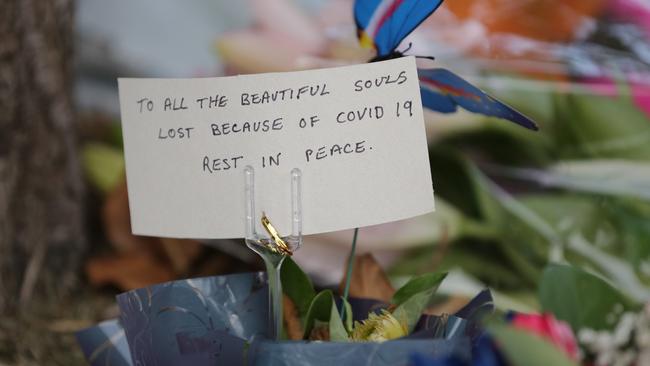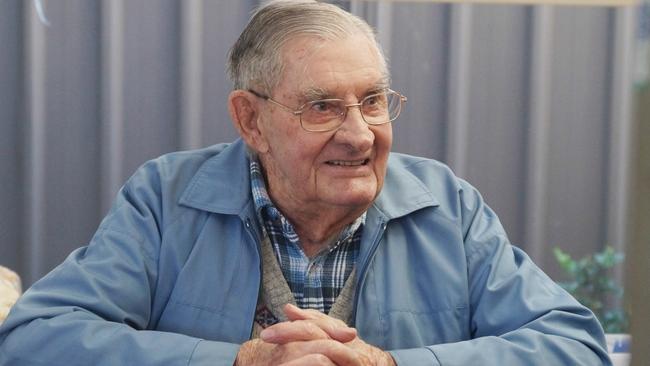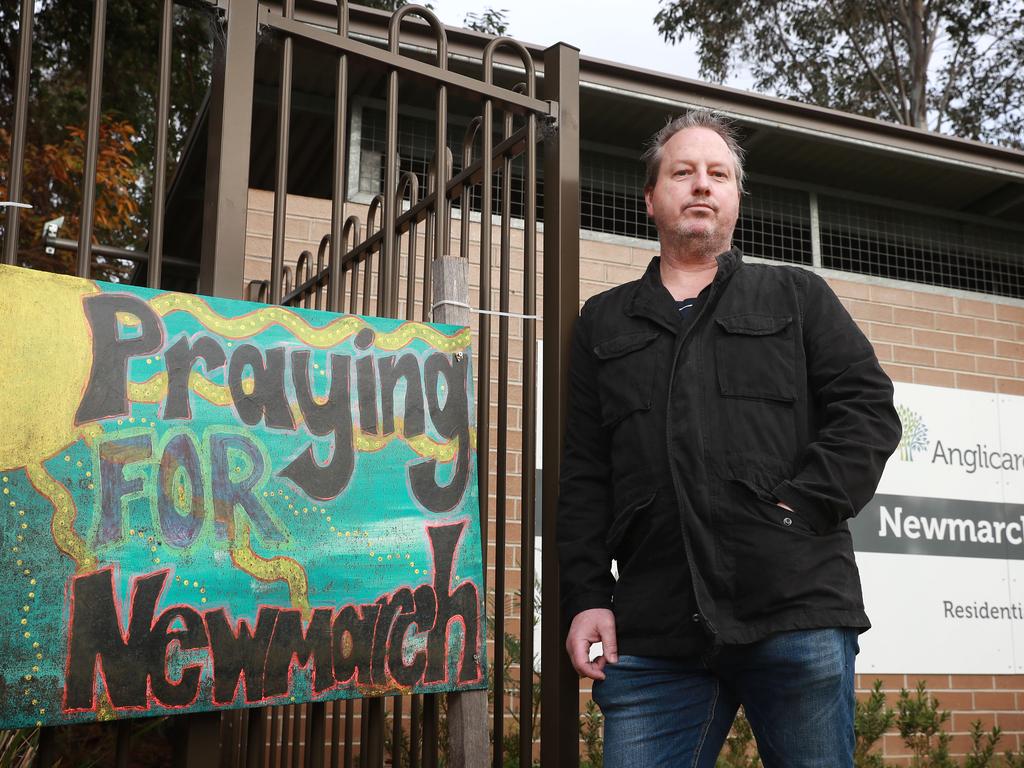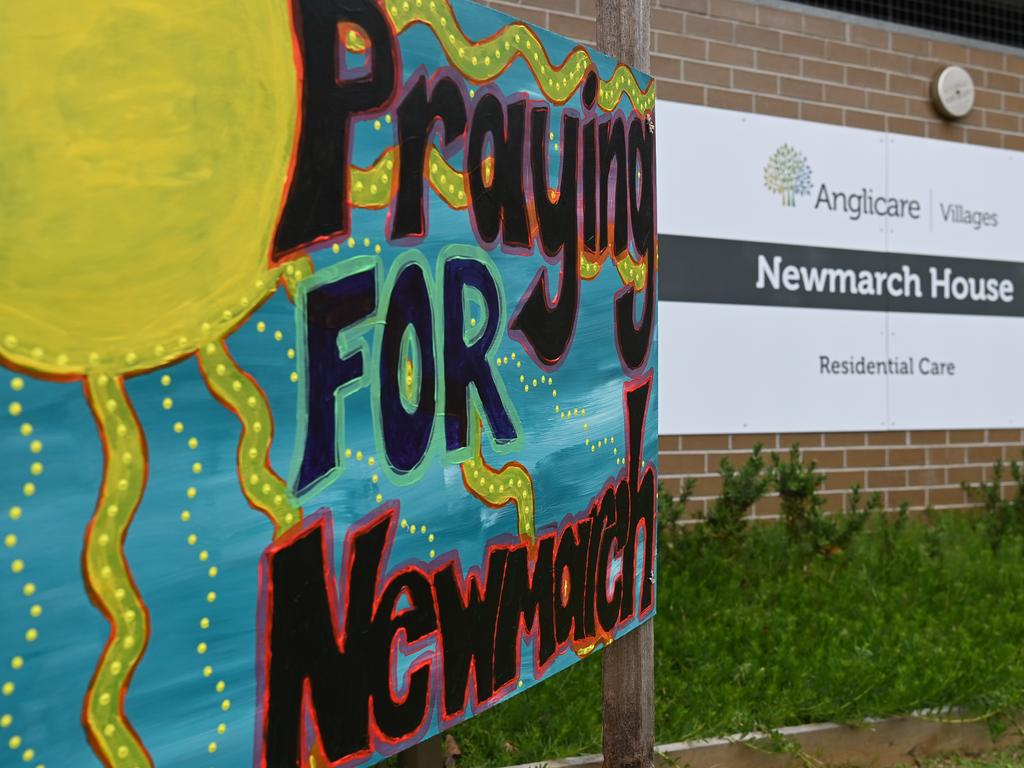Aged Care royal commission: Ron Farrell, 94, died without knowing he had virus
Virginia Clark says she only found out her 94 year-old father, a resident in New March House was being tested for the virus in a chance call.

Ron Farrell had a full life before he died at 94. Joined the RAAF at 18 during WWII, a career as an auctioneer and stud manager, volunteer bush fireman, seven kids, grandchildren, great-grandchildren, even great-great grandchildren.
Mr Farrell contracted coronavirus in Newmarch House in April, his home for the previous seven years. Tested for the virus sometime after Sunday 12 April, he died seven days later.
His daughter Virginia Clarke doesn’t think her dad, lucid to the end, was ever told by the nursing home that he’d caught COVID-19.

“The staff at Newmarch House never verified to me that Dad had been told about testing positive for COVID-19,” Ms Clarke told the aged care royal commission. “Instead, they told me ‘we can’t give that information out over the phone’ when I asked. I don’t think Dad even knew he had COVID-19.”
Four months on, the Newmarch House coronavirus outbreak, in which Mr Farrell and 16 other residents died, is the subject of an aged care royal commission sitting on COVID-19 in aged care.
The commission heard evidence that providers were confused about which level of government was in charge of the pandemic response in aged care, and of disagreement between authorities about whether to hospitalise sick residents.
They also heard that nursing home residents are becoming increasingly depressed, anxious, confused and suicidal the longer the pandemic drags on.
Ms Clarke said a worker from Newmarch House phoned her on Sunday April 12 to say a resident was COVID-positive and all residents would be tested. Ms Clarke phoned and emailed every day to check her father’s test, receiving no response.
“Finally on Friday 17 April, a staff member … rang to see how we were going. I told her that I was still waiting to hear about Dad, and she said ‘You don’t know? He’s tested positive.”
On Saturday Ms Clarke asked if the family could visit him.
“I was told that we could not. I was told that infection doctors had been in on the Friday and would be back to see Dad on Monday. The staff member told me they would give me another update on Monday.
“Dad passed away on Sunday 19 April,” she said.
Grant Millard, chief executive officer of Anglicare, owner of Newmarch House, gave emotional evidence to the commission, admitting the facility had been “overwhelmed” by the outbreak.
“Those residents who tragically died in Newmarch House, they did not die alone. They knew that they were loved and cared for,” Mr Millard said.
“We were absolutely overwhelmed with the challenges of dealing with COVID-19.”
The commission questioned Mr Millard and Anglicare’s general manager of service delivery Erica Roy about why Newmarch House awarded itself full marks in a pandemic readiness self-assessment survey less than three weeks before its first COVID case.
“With the benefit of hindsight … I acknowledge the statement was not accurate,” Ms Roy said, citing communication with families and maintaining standards with staff shortages as particular issues.
Mr Millard said with the benefit of hindsight he would have moved COVID-positive residents out of the home quicker, but he maintained there was confusion about who was in charge at government level, especially on the issue of taking sick residents to hospital.
The commission also heard from psychologist Julie Kelly, who warned the pandemic was creating emotional turmoil for nursing home residents.
“I certainly have seen a large increase in depression and anxiety as well as confusion, suicidal risk has gone higher as well,” Ms Kelly said.
“Those that generally were coping relatively well during the first lot of COVID earlier on in March, they‘re presenting now with a lot more generalised distress.







To join the conversation, please log in. Don't have an account? Register
Join the conversation, you are commenting as Logout